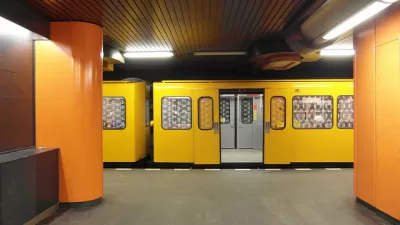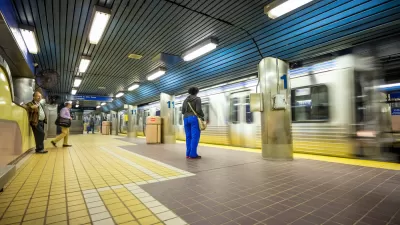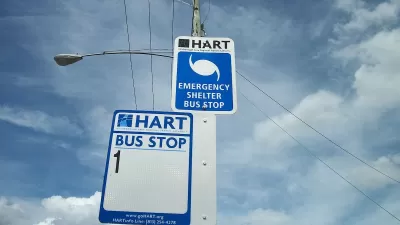Mass demonstrations in Brazil over the past week were sparked by increases to bus fares. But what if buses were free? The Economist makes the argument that, to improve service and decrease congestion, we should study making buses and subways free.
"Fares bring in a lot of money, but they cost money to collect—6% of the MTA's budget, according to a 2007 report in New York magazine. Fare boxes and turnstiles have to be maintained; buses idle while waiting for passengers to pay up, wasting fuel; and everyone loses time," explains The Economist's Gulliver blog. One idea, floated recently by Slate blogger Matt Yglesias, would be to implement proof-of-payment systems instead.
However, "[p]roof-of-payment systems don't solve the problem of fare-collection costs as they require inspectors and other staff to handle enforcement, paperwork and payment processing," says The Economist. "Making buses and subways free, on the other hand, would increase passenger numbers, opening up space on the streets for essential traffic and saving time by reducing road congestion."
The idea has been proposed in New York (as long ago as 1965 says The Economist), and implemented in several European cities. Is it time that free transit gets a closer examination?
FULL STORY: Maybe buses should be free

Alabama: Trump Terminates Settlements for Black Communities Harmed By Raw Sewage
Trump deemed the landmark civil rights agreement “illegal DEI and environmental justice policy.”

Planetizen Federal Action Tracker
A weekly monitor of how Trump’s orders and actions are impacting planners and planning in America.

The 120 Year Old Tiny Home Villages That Sheltered San Francisco’s Earthquake Refugees
More than a century ago, San Francisco mobilized to house thousands of residents displaced by the 1906 earthquake. Could their strategy offer a model for the present?

In Both Crashes and Crime, Public Transportation is Far Safer than Driving
Contrary to popular assumptions, public transportation has far lower crash and crime rates than automobile travel. For safer communities, improve and encourage transit travel.

Report: Zoning Reforms Should Complement Nashville’s Ambitious Transit Plan
Without reform, restrictive zoning codes will limit the impact of the city’s planned transit expansion and could exclude some of the residents who depend on transit the most.

Judge Orders Release of Frozen IRA, IIJA Funding
The decision is a victory for environmental groups who charged that freezing funds for critical infrastructure and disaster response programs caused “real and irreparable harm” to communities.
Urban Design for Planners 1: Software Tools
This six-course series explores essential urban design concepts using open source software and equips planners with the tools they need to participate fully in the urban design process.
Planning for Universal Design
Learn the tools for implementing Universal Design in planning regulations.
Clanton & Associates, Inc.
Jessamine County Fiscal Court
Institute for Housing and Urban Development Studies (IHS)
City of Grandview
Harvard GSD Executive Education
Toledo-Lucas County Plan Commissions
Salt Lake City
NYU Wagner Graduate School of Public Service





























